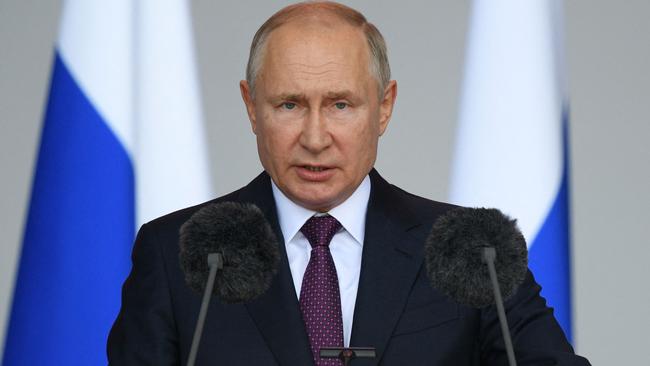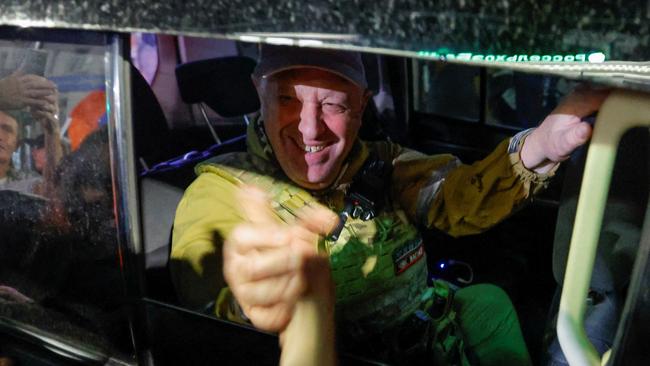Why Vladimir Putin is crisis after Wagner Group rebellion
The Russian leader’s latest moves have posed many questions about his leadership and speak volumes about his overall state, writes Charles Miranda.
World
Don't miss out on the headlines from World. Followed categories will be added to My News.
ANALYSIS
Forty eight hours after the failed insurrection in Russia, in the southwestern city of Voronezh the Wagner mercenary recruiting centre was doing swift business.
It mattered not that Wagner stopped short of launching bloody rebellion, but was publicly critical of Russia’s war and its military leadership or that their raving war lord leader Prigozhin Yevgeny had agreed to live in exile in Belarus.
As part of the deal to avoid a civil war, Vladimir Putin and the Kremlin publicly endorsed the continued existence of the militia to continue its war on Ukraine.
Three things can be read from this – Putin is delusional, the Kremlin is fearful of a populist Wagner-led rise on the elites and the Russian military is completely devoid of morale and aptitude to conquer the beleaguered NATO-backed Ukraine.

Much has been written about Putin’s mental state – even his ambassador to Australia the hapless Alexey Pavlovsky lamented his boss had long been painted the maniacal Joker to the West’s Batman.
But Putin’s latest concession to Wagner, the private army he not only endorsed but helped create, speaks volumes about his overall state. The bare-chested strongman image he laughably so often put out no longer rings true – if it ever did.
His leadership is not only under question it had been openly challenged and he blinked and has been forced to offer Wagner concessions (and if speculation is true, great wealth and other undeclared promises).
Putin has now not only metaphorically but physical retreated and the level of confusion and unpredictability he leaves Russia behind in raises even more questions about his leadership sustainability.

He has made many miscalculations not least of which was the invasion of Ukraine that even elements of the Russian State media are now starting to question. About 40 per cent of ordinary Russians are believed to be getting news externally via Telegram and must now question what it is all about.
It is not yet clear how many of the estimated 25,000 Wagner troops moved on Moscow on the weekend and have now been granted prosecution amnesty or how many did not partake and are now being offered contracts to join the regular Russian army.
But clearly Wagner is still actively recruiting and sending truckloads of troops for “training” in the southern city of Krasnodar to what end is unclear.
As Nina Khrushcheva, grand daughter of former Soviet leader Nikita Khrushchev, remarked from her home in Moscow over the weekend Putin’s “victory” over Prigozhin made him (Putin) the weaker.
His regime will not collapse tomorrow she said but “it is the beginning of the end”.
More Coverage
Originally published as Why Vladimir Putin is crisis after Wagner Group rebellion
Read related topics:Russia & Ukraine Conflict



